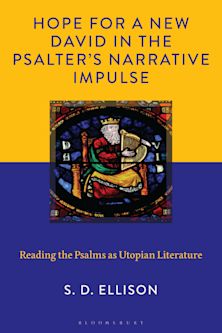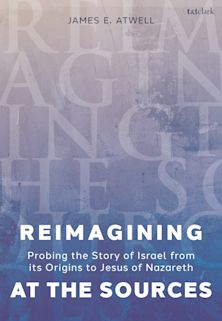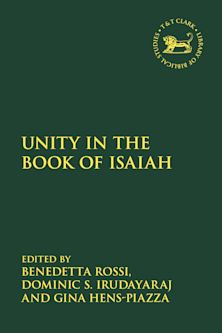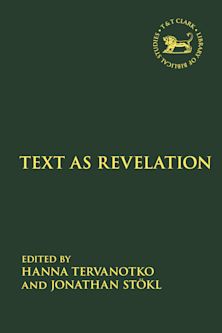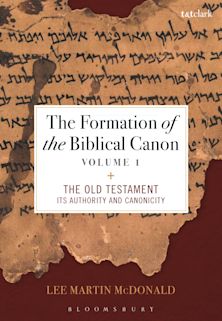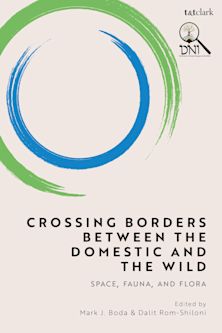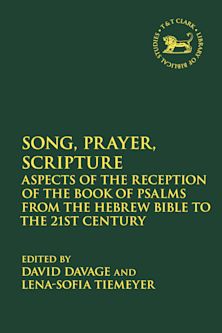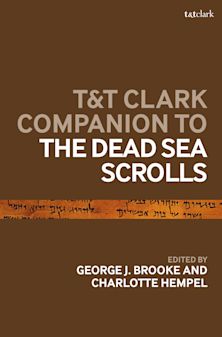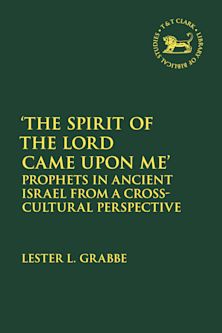- Home
- ACADEMIC
- Biblical Studies
- Old Testament / Hebrew Bible
- Gender Distinction in Israelite Personal Names
Gender Distinction in Israelite Personal Names
A Socioreligious Investigation
Gender Distinction in Israelite Personal Names
A Socioreligious Investigation
Payment for this pre-order will be taken when the item becomes available
- Delivery and returns info
-
Free UK delivery on orders £30 or over
You must sign in to add this item to your wishlist. Please sign in or create an account
Description
This book challenges the traditional view that no significant distinction exists between male and female names in the Hebrew Bible by comparing all female names from the Hebrew Bible, Hebrew inscriptions, and Elephantine documents with comparable male names.
It shows clear distinctions, unnoted or dismissed by previous studies, and analyzes more subtle differences as reflecting social and religious customs and values over time. Particular attention is given to the work of Rainer Albertz in Family and Household Religion in Ancient Israel and the Levant (co-authored with Rüdiger Schmitt), where he analyzes the personal names found in epigraphic sources as a complement to the biblical names and a primary source for reconstruction of “household religion” in ancient Israel. Two appendices treat (a) the distribution of female names in the Hebrew Bible, with attention to the implications of distinct literary sources for the biblical female and male names, and (b) detailed analysis of all theophoric female names, with comparison to male names from the same root.
Table of Contents
List of Abbreviations
1. History of Investigation
2. The Study Corpus
3. The Theophoric Names
4. Patterns of Gender Differentiation in Theophoric Names
Conclusions
Appendix A: Distribution of Israelite FNs in the Hebrew Bible by Literary Source
Appendix B: Theophoric Female Names, with Comparative Analysis
Bibliography
Index
Product details
| Published | 04 Feb 2026 |
|---|---|
| Format | Hardback |
| Edition | 1st |
| Extent | 168 |
| ISBN | 9798765159361 |
| Imprint | T&T Clark |
| Illustrations | 4 tables |
| Dimensions | 229 x 152 mm |
| Series | Feminist Studies and Sacred Texts |
| Publisher | Bloomsbury Publishing |
About the contributors
Reviews
-
Drawing on an expanded corpus of female names, this latest scholarly contribution by Phyllis A. Bird offers a fresh perspective on women-and men-in ancient Israel. Finely attuned to gender as well as class, this study displays excellent textual intuition and sober philological judgment. An important contribution to the study of ancient Israelite society.
Mark S. Smith, Helena Professor of Old Testament Literature and Exegesis, Princeton Theological Seminary, USA
-
Phyllis A. Bird's meticulous analysis of female and male personal names in the Hebrew Bible, Epigraphic Hebrew, and Elephantine marks a major advance. Moving well beyond the work of Noth, Stamm, Albertz, and others, she discovers both gender differences by categories and chronological developments in usage. From these results, she proposes constructive and careful suggestions for the place of women in Israelite communities over time.
Katharine Doob Sakenfeld, Professor of Old Testament Emerita, Princeton Theological Seminary, USA













